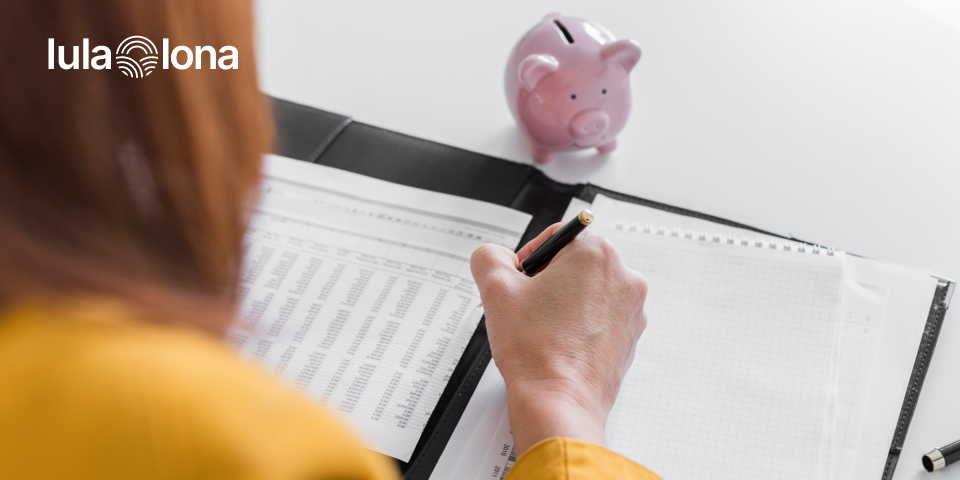
A practical guide to managing rising expenses and adapting your budget to today's economy.
South Africa in 2025 is facing another year of financial pressure. Electricity prices have surged again, food costs are rising, and petrol remains unstable. For many households – whether in Johannesburg or small towns in the Eastern Cape – the cost of living feels like a moving target.
But while inflation and economic shifts are out of your control, your response is not. At Lula Lona, we help South Africans navigate financial uncertainty with clear, actionable advice.
This guide breaks down the real cost of living in 2025 and offers smart strategies to adapt your finances – without sacrificing your peace of mind.
What Is the Cost of Living in South Africa in 2025?
The cost of living refers to how much money you need each month to cover basic expenses like housing, food, transport, utilities, and healthcare.
In 2025, the average cost of living for a single person in an urban area is estimated at R9,000–R12,000 per month. For a small family, that figure jumps to R18,000–R25,000, depending on location and lifestyle.
Key Expense Categories:
| Expense | Average Monthly Cost (Urban) |
|---|---|
| Rent (1-bedroom apartment) | R4,500 – R8,000 |
| Electricity & Water | R1,000 – R1,800 |
| Groceries (1 person) | R3,000 – R4,500 |
| Transport | R800 – R1,500 |
| Mobile & Internet | R400 – R800 |
| Medical Aid | R1,500 – R3,500 |
| Childcare / Schooling (per child) | R1,800 – R4,000 |
These numbers vary significantly depending on whether you live in Cape Town, Pretoria, or rural Limpopo. But the trend is the same: costs are rising.
What’s Driving Costs Up in 2025?
Several key factors continue to shape the economic landscape:
1. Eskom Tariff Increases
Electricity has become one of the fastest-growing household expenses, with tariff hikes averaging 12–18% in the past year. Load-shedding also forces many families to invest in backup systems like inverters or solar panels – another strain on the budget.
2. Food Inflation
Imported goods, supply chain disruptions, and climate-related agricultural issues have driven food prices upward. Essentials like maize meal, cooking oil, meat, and bread have all seen double-digit price increases.
3. Transport and Fuel
Fuel prices remain volatile. Even as global oil prices stabilize, the fuel levy and weak rand continue to affect local costs – impacting both private transport and public services like taxis and buses.
4. Healthcare and Education
Private medical aid and school fees have steadily increased above inflation, making it harder for families to access quality care and education without careful planning.
How to Adapt Your Finances in 2025
While you can’t control prices, you can control how you respond. Here’s how to stay afloat and protect your future:
1. Audit Your Monthly Spending
Start by tracking every rand. Many people underestimate how much they spend on small items – mobile data, snacks, streaming subscriptions. Use apps like 22seven or a simple spreadsheet to get a full picture of your spending.
Once you know where your money is going, you can start adjusting with purpose.
2. Prioritise Essential Spending
Separate your expenses into:
- Needs (rent, food, utilities)
- Wants (eating out, entertainment, takeaways)
- Goals (savings, debt repayment)
In tough times, focus first on your needs. Then, allocate money for goals. Wants come last.
A common approach:
50% needs, 30% wants, 20% goals – but in 2025, it’s okay if that becomes 60/20/20 or even 70/10/20, depending on your income.
3. Cut Hidden and Passive Expenses
Some expenses don’t scream for attention but quietly drain your budget. Look out for:
- Auto-renewing subscriptions you no longer use
- Premium TV packages
- Unused gym memberships
- Multiple banking fees
Cancel what you can live without. Many people reclaim R500–R1,000/month this way.
4. Shop Smarter for Groceries
Groceries take a big chunk of the budget, but smart strategies help:
- Buy store brands (often identical to name brands)
- Plan weekly meals in advance
- Use loyalty cards (Pick n Pay Smart Shopper, Checkers Xtra Savings)
- Buy in bulk for non-perishables
- Shop around – prices vary more than you think
Also consider community food co-ops or wholesale partnerships with friends or neighbours.
5. Use Digital Tools and Bank Features
Many South African banks offer tools that can help:
- Capitec and FNB have budgeting dashboards
- Nedbank Avo offers discounted groceries and airtime
- Discovery Bank rewards you for healthy spending habits
Embrace mobile banking to monitor and manage expenses in real time.
6. Start or Rebuild an Emergency Fund
Even saving R200/month is a win. The goal is to create a financial buffer that protects you from surprises like car repairs, medical bills, or job loss.
Use a separate savings account or digital wallet, so you're not tempted to dip into it.
7. Talk About Money with Your Household
If you live with a partner, family, or roommates, make finances a team topic.
Discuss:
- How much each person contributes
- Where money leaks
- Shared saving goals
Transparency builds trust – and saves money.
8. Avoid High-Cost Debt
In 2025, interest rates remain high. Before taking out credit:
- Compare offers (not just on interest, but on admin fees)
- Understand total repayment costs
- Prioritise paying off short-term, high-interest debt like credit cards
Consider debt consolidation or structured repayment plans if you’re struggling.
Adaptation Is the New Normal
South Africans are resilient – but they need tools and clarity. By learning how to budget, track, and adjust your lifestyle, you gain the power to respond proactively to rising costs.
You don’t have to cut out joy. You just need to be intentional.
At Lula Lona, we’re committed to walking this path with you. With the right mindset and information, you can take control of your finances, even in uncertain times.







